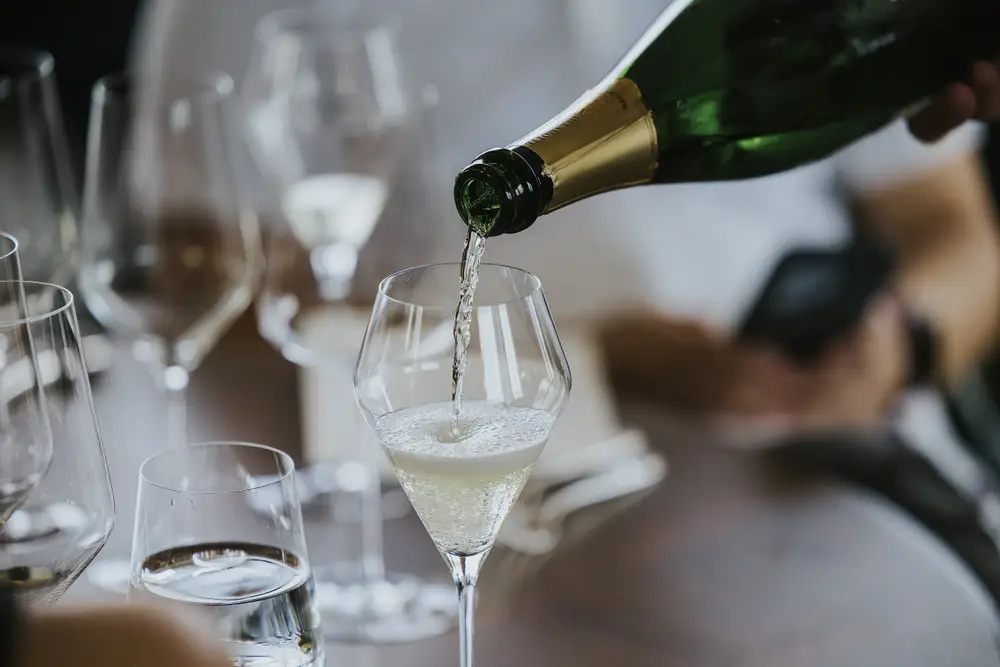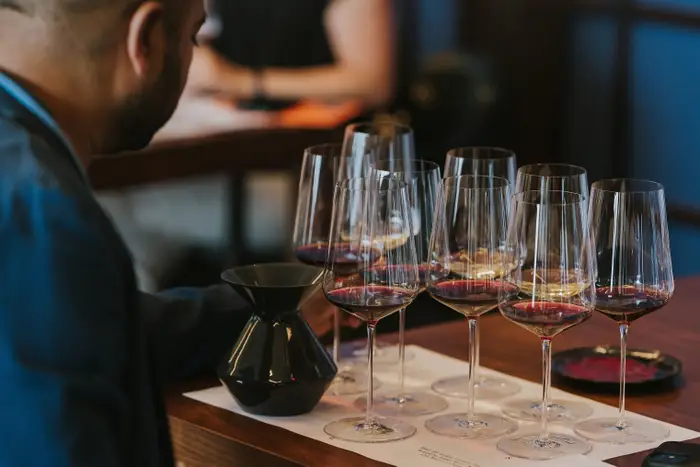You’re probably pouring Champagne wrong, says a master of wine

Master sommelier Richard Hemming recommends using universal wine glasses over flutes to enhance Champagne’s aroma and flavour.
If you’re sipping from Champagne flutes after popping the bottle, you’re likely enjoying your bubbly the wrong way, said Richard Hemming, a master sommelier.
Hemming knows his sparkling wine: He’s the head of wine at 67 Pall Mall Singapore, a luxury, members-only wine club and restaurant. And he’s not totally against flutes: He used them at his wedding.
Flutes have become the standard for Champagnes because they’re small, easy to hold, and convenient for serving — though not the easiest to pour, since fizz means they need to be topped off.
But they’re “terrible for appreciating the wine,” Hemming told B-17.
The long, narrow shape of the iconic glassware stifles Champagne’s aroma and flavor — and it’s hard to use.
“You have to tip way too far back to actually drink the stuff,” Hemming told B-17. The narrow opening concentrates the bubbles, making it a nightmare to pour and a challenge to enjoy.

Champagne is commonly served in flutes.
So is there a right glass to enjoy Champagne? Hemming swears by simple universal wine glasses. The glasses’ broader bowl provides ample space for the Champagne’s aromas to develop while maintaining the effervescence that allows the wine to “express itself very clearly,” said Hemming.
It’s not all about the shape either, Hemming also emphasized the importance of the glassware’s quality — 67 Pall Mall uses bespoke Zalto glasses.
While swapping the flute out might seem like an insignificant adjustment, it’s a game-changer for wine aficionados. Flutes might be great for passing around at a crowded party, but they don’t do justice to rare and niche brands that Champagne enthusiasts covet, Hemming told B-17.

Universal wine glasses can also be used for Champagne and other wines.
Champagne enjoyed a post-pandemic bump, but sales have softened for major producers. In 2021, Champagne sales globally spiked 14% from pre-COVID records, hitting a peak of $5.7 billion following a wave of post-pandemic celebrations, per industry group Union des Maisons de Champagne.
But in July, luxury giant LVMH — the world’s largest Champagne maker — reported a 15% drop in Champagne sales for the first half of 2024, compared to the previous year.
Jean-Jacques Guiony, CFO of LVMH, theorized that fewer people were popping bottles because of fewer celebrations in the wake of greater economic and geopolitical uncertainties.






